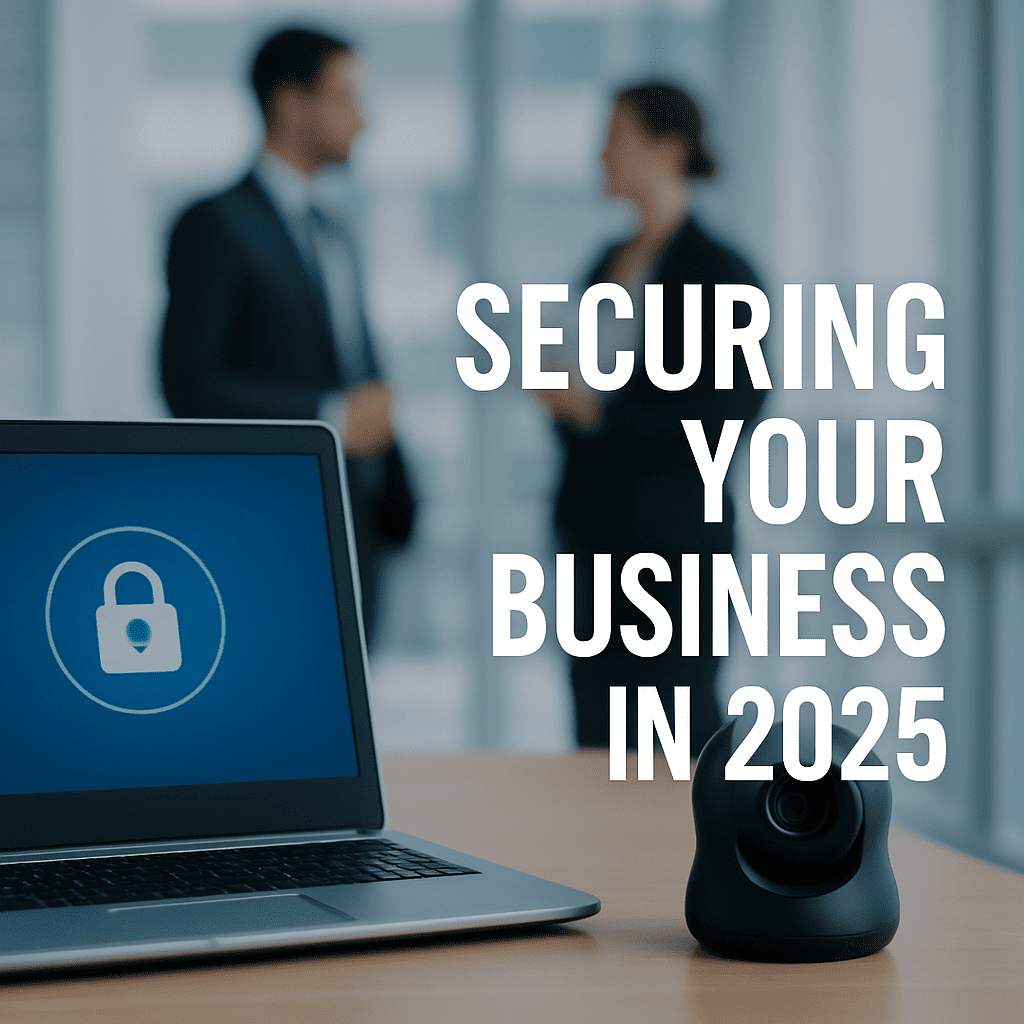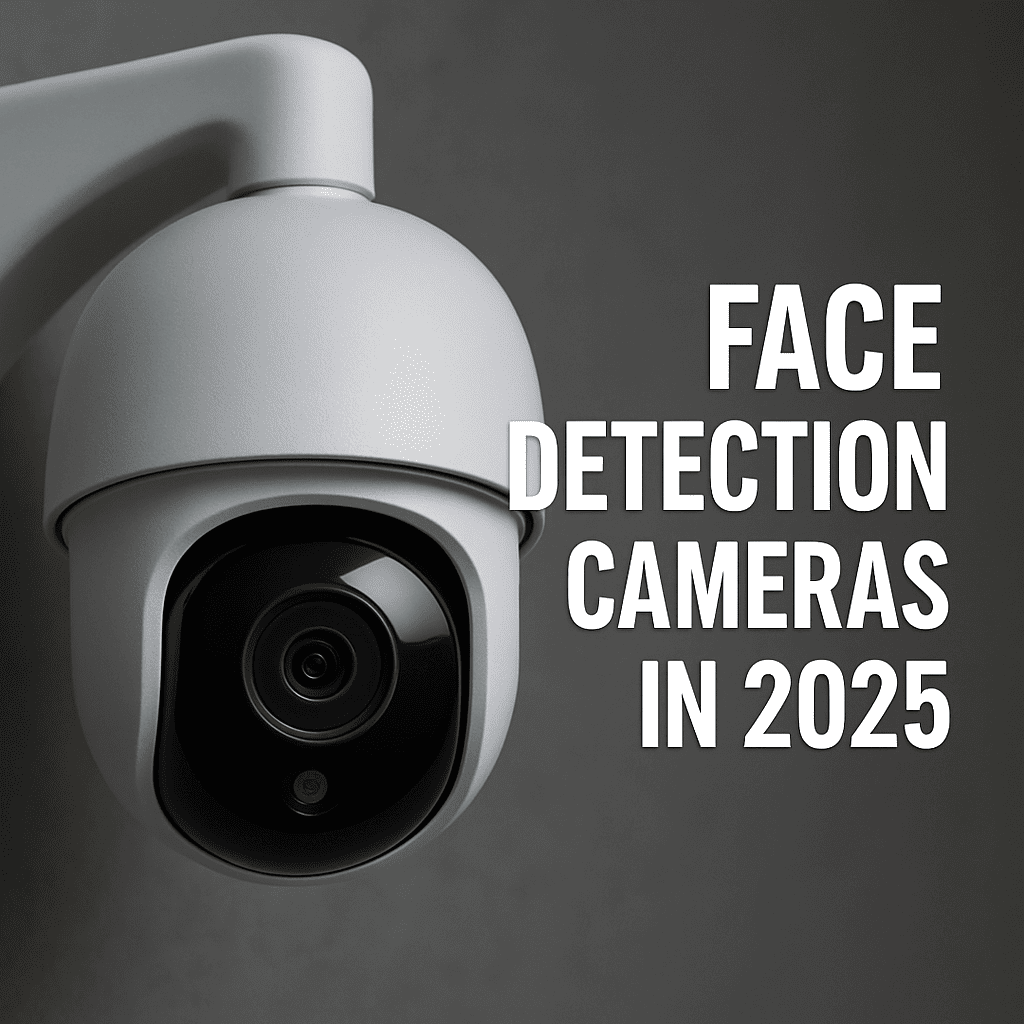Smart Tech to Secure Your Business in 2025

As businesses grow smarter, so do threats. In 2025, security isn’t just about locks and passwords—it’s a dynamic blend of AI, automation, and real-time analytics. From physical intrusion to digital breaches, technology is now the frontline defense for companies of all sizes.
Whether you run a retail store, a startup, or a large enterprise, this guide covers the latest technologies designed to protect your business—physically and digitally—in today’s fast-moving world.
AI Surveillance: The New Eyes on the Ground
Traditional CCTV systems are now obsolete. Enter AI-powered surveillance, where cameras do more than record—they think.
Key Features:
- Facial recognition for employee and visitor access
- Behavior detection to identify suspicious movement or crowd formation
- License plate scanning for secure vehicle entry
- Loitering alerts in real-time
AI surveillance systems like Avigilon AI Edge, Google Cloud Vision Guard, and Hikvision UltraAI reduce human monitoring errors and respond faster than manual security.
Biometric Access Control: No Keycards, No Codes
Passwords can be hacked, badges can be stolen—but your fingerprint, face, or iris cannot.
Biometric access systems in 2025 offer:
- Touchless door entry using facial scans
- Multi-factor ID: Combine face + voice + location for tighter access
- Time-based permissions (e.g., delivery staff can enter only from 9–11 AM)
These systems are now affordable and scalable, ideal for everything from co-working spaces to high-security labs.
Cybersecurity 2025: Smarter Threat Detection
With cybercrime costing businesses billions globally, next-gen cybersecurity platforms now use AI and automation to stay one step ahead.
Key Innovations:
- AI-driven firewall systems that adapt to new attack patterns
- Behavioral anomaly detection in internal networks
- Zero Trust Architecture: Never trust, always verify—internally and externally
- Decentralized authentication using blockchain
Top platforms like CrowdStrike Falcon AI, SentinelOne Quantum, and Microsoft Defender X are enabling real-time protection with minimal lag or user disruption.
Smart Data Backup & Recovery
Losing data due to ransomware, system failure, or accidental deletion can crush a business. That’s why 2025 sees the rise of self-healing, AI-powered backup systems.
These platforms:
- Continuously back up data every few minutes
- Identify corrupted files and auto-replace from clean snapshots
- Offer air-gapped storage (physically isolated) for added protection
Examples include Acronis AI Vault, Veeam Smart Backup, and Google Cloud Disaster Guard.
Secure IoT Devices: The Silent Risk
From smart lights to coffee machines, every connected device is a potential entry point for hackers.
2025’s best practices include:
- AI firewalls for IoT traffic
- Unique encryption keys for each device
- Regular firmware scanning and patching
New IoT hubs like Cisco Edge Secure, Ubiquiti AI Gateway, and Netgear Armor 2.0 offer enterprise-grade IoT protection for even small offices.
Smart Visitor Management
For physical premises, knowing who enters your building matters. Modern visitor management systems offer:
- Facial scan check-in kiosks
- Auto alerts to hosts via mobile
- QR-based visitor badges that expire after use
- Cloud logging for audit trails and emergency access
These systems are GDPR-compliant and reduce manual check-in errors.
Real-Time Monitoring Dashboards
Business owners in 2025 can view their entire security ecosystem on one dashboard—from cameras and access logs to threat alerts and employee safety checks.
Using platforms like:
- Splunk SecureOps
- Honeywell CommandView
- Verkada Cloud Control
You can monitor multiple locations, receive alerts, and take actions—all from your phone or tablet.
Bonus: AI-Powered Risk Forecasting
AI now predicts when and where your business might face threats—from burglary risk at night to potential phishing attempts on employees.
This predictive layer uses:
- Historical incident data
- Behavioral signals
- Global threat intelligence networks
Companies using this tech see up to 70% drop in physical and digital breaches.










